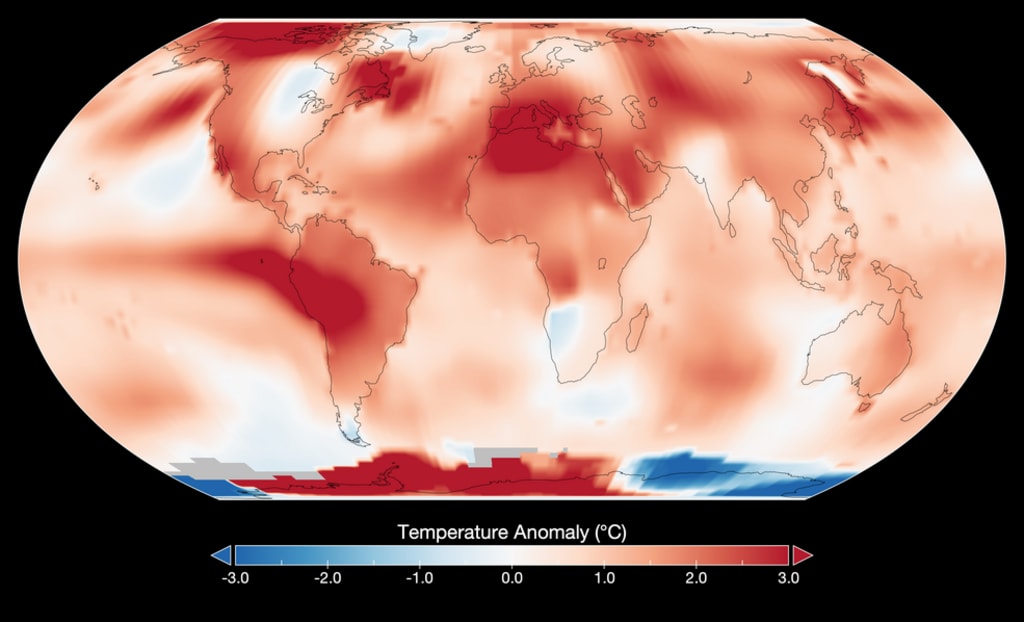
Introduction
In a historic turn of events, July 2023 has marked its place in the record books as the hottest month ever recorded on a global scale. This shocking revelation comes from NASA's Goddard Institute for Space Studies (GISS) in New York, shedding light on the alarming realities of climate change. Let's delve into the details of this report and its implications for our planet's future.
Unprecedented Heat
The data provided by NASA's analysis indicates that July 2023 was not just warmer than any other July in history but was also 0.43 degrees Fahrenheit (0.24 degrees Celsius) hotter than any other month on record. This stark increase in temperature surpasses the previous records, urging us to take immediate action to combat the climate crisis.
The Biden Administration's Climate Leadership
In the face of this dire situation, the Biden administration has been recognized for its proactive stance on addressing climate change. Ali Zaidi, the White House National Climate Advisor, emphasizes how President Biden has taken this crisis seriously from day one. From enacting the Inflation Reduction Act, the largest climate investment in history, to boosting clean energy manufacturing through the Defense Production Act, the administration is working diligently to tackle this existential threat.
Understanding the Temperature Anomalies
To put things into perspective, July 2023 was a staggering 2.1 degrees Fahrenheit (1.18 degrees Celsius) warmer than the average July between 1951 and 1980. The GISS analysis uses a fixed base period to accurately gauge anomalies over time, highlighting the drastic shifts in our climate.
Real-World Consequences
The repercussions of this temperature surge are not confined to mere statistics. Certain regions, like parts of South America, North Africa, North America, and the Antarctic Peninsula, witnessed temperatures soaring about 7.2 degrees Fahrenheit (4 degrees Celsius) above the norm. This extreme heat has led to widespread heat warnings, countless heat-related illnesses, and unfortunately, even deaths.
The Pattern of Human-Driven Warming
NASA's data affirms that the increase in global temperatures is a result of human activities, primarily the emission of greenhouse gases. The report reveals that the five hottest Julys since 1880 have occurred within the last five years, further highlighting the urgency of the situation.
Data Collection and Analysis
To compile their temperature records, NASA gathers data from meteorological stations and instruments on ships and buoys worldwide. This meticulous data analysis takes into account factors like the distribution of temperature stations and urban heating effects to provide accurate insights into global temperature changes.
El Niño's Role
The record-breaking warmth in July 2023 can be partially attributed to high sea surface temperatures, particularly in the eastern tropical Pacific. This phenomenon, known as El Niño, contributes to year-to-year temperature variability. While the effects of El Niño are expected to peak in early 2024, its development underscores the intricate nature of climate systems.
Conclusion: A Call to Action
The NASA report serves as a wake-up call for humanity. The consequences of climate change are not distant concerns; they're happening right now, affecting lives and ecosystems around the world. The urgency to take action has never been clearer. As temperatures continue to rise and extreme weather events become more frequent, it's imperative that we collectively commit to sustainable practices, reduce greenhouse gas emissions, and support policies that prioritize our planet's well-being.
July 2023's record-breaking temperatures are not just numbers on a chart. They represent a crucial turning point that demands our attention, action, and unity. Let's come together to safeguard our planet for current and future generations.
About the Creator
Vijay A
I am a dedicated writer who customizes my writing to suit the specific needs of each project. I produce engaging and innovative content that goes above and beyond expectations.





Comments
There are no comments for this story
Be the first to respond and start the conversation.